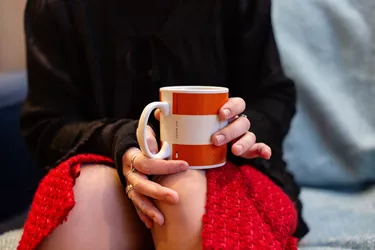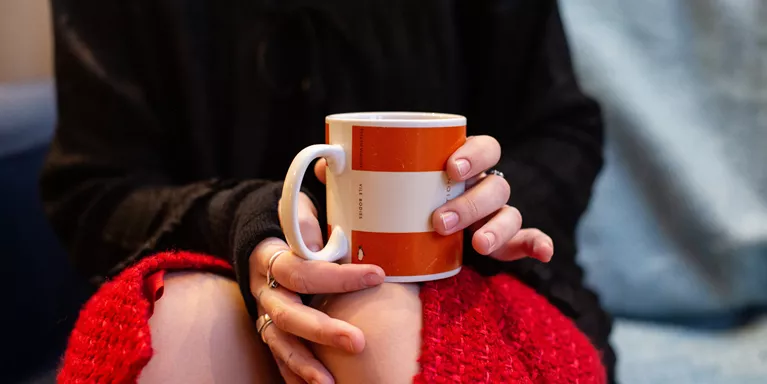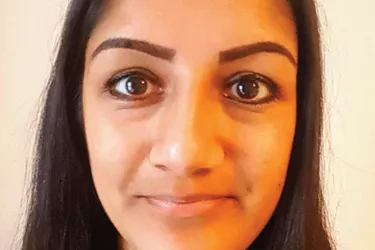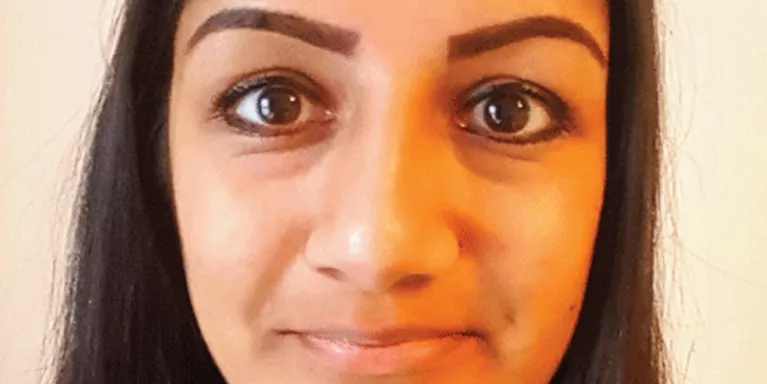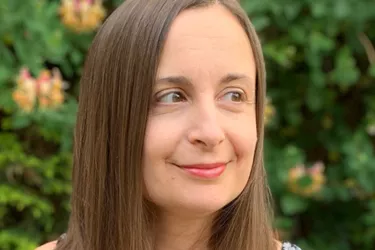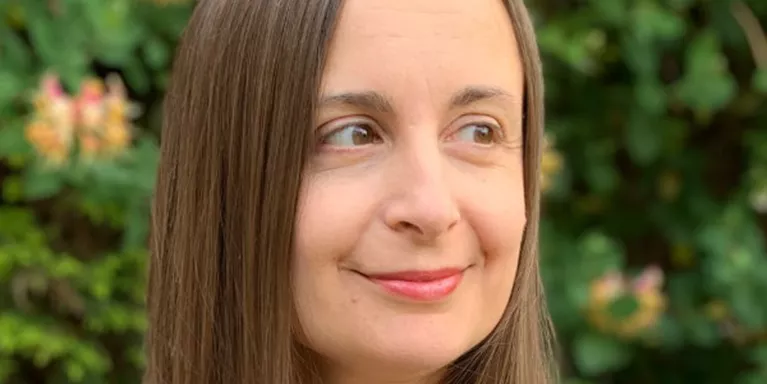I'm fighting for unconditional acceptance
In Mental Health Awareness Week, Mind community activist Jasmin blogs about how gender, race and religion have all impacted on their mental health.
When you are a brown Hindu non-binary person, the impact of gender, race and religion on your mental health is really strong. There are constant reminders in the world of how you are different, from equal opportunities monitoring forms, to the way people look at you on the street. Honestly, there are times when I wish I was a straight cis white male or female, because then I wouldn’t be such a minority. The 2011 Census records found that 2.5% of the UK population is Indian and 1.5% identified as Hindu. According to Stonewall, 1% identify as trans or non-binary. As you can imagine, my life is a lonely one.
Something felt wrong
I was born female and grew up to become a full-bodied, mentally broken but gorgeous brown woman. However, in the back of my mind, I always knew something was slightly wrong with that label “woman”. I am a proud global feminist and am forever disgusted that 50% of this world has to experience so many horrors due to their gender, yet I can’t call myself a woman. Not even in solidarity.
There are non-binary icons who have helped me realise my identity and inspired me to be courageous in expressing it. The fashion of Jonathan Van Ness. The feminism of the drag queen Hollow Eve. The conversation regarding gender identity struggles between the drag queens Bimini and Ginny Lemon on Rupaul’s Drag Race UK. They were my motivations to come out this year – first to my wonderful, supportive boyfriend, and then to the rest of my chosen family. I didn’t realise how much it had been affecting my mental health all these years, and now it feels like half a weight off my chest.
The way people look at me
Another conversation had on Drag Race UK was about the lack of British black gay representation in popular media. This wasn’t a shocking discussion at all. I mean, my non-binary icons I listed previously are all white. But why does this matter? It matters because, sometimes, I feel so very depressed and alone. I have never met or heard of anyone like me, someone who truly understands my whole experience. All my non-binary icons have white privilege. I see the way people look at me because of the brownness of my skin. I feel the judgement from the British Indian community for not being “conventional”. I hear the tone in those questions, ranging in intensity between “Where are you from?” and “Why don’t you go back where you belong?”
Now on top of being a Hindu Indian, we factor in my mental health conditions: BPD, and depression. I prefer to call my BPD “borderline” because it's actually my personality, and I don't want to describe my personality as a disorder. As an optimist, I have chosen to see my borderline as a positive gift rather than a negative hindrance. I have mentioned the depressed loneliness, but there is also the fear. I am female presenting in body and name, thus vulnerable to all the violence and misogyny women experience, yet I insist my pronouns are they/them.
I insist I am different and purposefully stand out even more than I do already. There is the shame of being the black (or I guess brown) sheep of my family, the only queer one, the only one who rejected their gender, so every conversation with them has the potential to make me cry out of frustration of not being understood, or worry that they’ll just abandon me because I am both too much and not enough. I came out to my mum, again, as non-binary/pansexual, who said “as long as you are happy and healthy that is all that matters”. I am yet to tackle the rest of my family. It is something I may never share.
The ongoing battle
Some people with borderline don’t have a strong sense of their identity, and this is something I already question every day. Am I just trying to be unique? Trying to be interesting? Maybe it would be easier and simpler for me and my family if I just identified as a straight brown woman? I have a boyfriend, so why not? My internal monologue is trying to oppress my true self, and it’s an ongoing battle that I’m afraid I won’t win.
Even though I am ultimately much happier with my lovely “they/them” pronouns, I still experience a lot of loneliness. There is hope when people use the term “women+” in feminist discussions which makes me feel included. There are people of colour who inspire me, and people who are non-binary or open about their mental health issues, but it would be really nice if I knew just one other person who encompassed all of these aspects. To share my voice for my kind of diversity. But you know, if that doesn’t exist, then consider this blog me stepping into those shoes and breaking them in. I will be a voice for people like me. I will fight for unconditional acceptance. And maybe one day, I will find someone brown, Hindu and non-binary to fight alongside me.


Information and support
When you’re living with a mental health problem, or supporting someone who is, having access to the right information - about a condition, treatment options, or practical issues - is vital. Visit our information pages to find out more.
Share your story with others
Blogs and stories can show that people with mental health problems are cared about, understood and listened to. We can use it to challenge the status quo and change attitudes.










